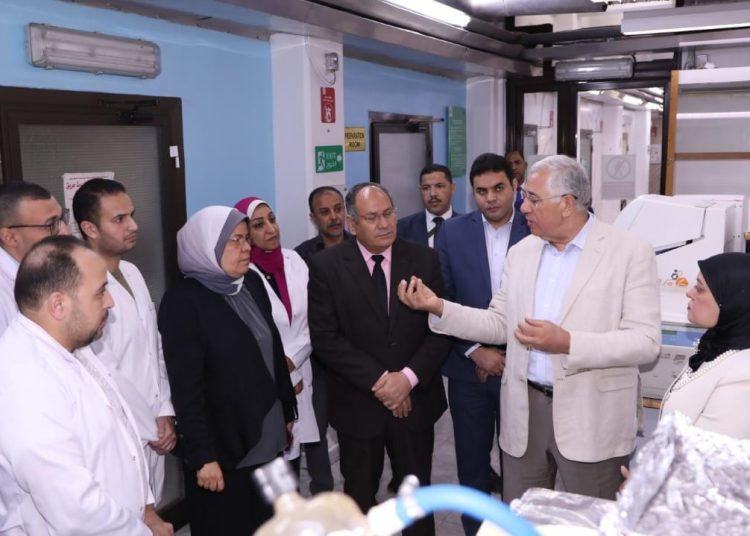CAIRO – Egyptian Minister of Agriculture and Land Reclamation El Sayyed El Quseir stated that the ministry have a set of state-of-the-art laboratories for testing food, whether for the local markets or for export, noting that these laboratories have become reference points at both the African Union and the Middle East region, equipped with the latest advanced devices in the field of plant and animal food safety.
This came during the minister’s visit on Sunday to the laboratories of the Institute of Animal Health and Pesticide Residues to monitor the progress of work and meet with researchers, in the presence of Dr. Adel Abdelazim, Head of the Agricultural Research Center, Dr. Mamdouh Shahin, Director of the Institute of Animal Health, and Dr. Hend Abdel-Lah, Director of the Central Laboratory for Pesticide Residue Analysis and Heavy Metals in Food.
The minister added that the state provides full support for research, development, laboratories, and everything related to food security because it is linked to the national security of the country, pointing out that in the face of limited natural resources such as land and water, increasing productivity has become the magic solution to confront challenges and crises through applied research.
He emphasized that the state harnesses all its capabilities to support the food security system and activities related to agriculture, affirming that the agricultural sector witnessed an unprecedented renaissance during the presidency of Abdel Fattah El Sisi, with preemptive measures enabling the state to confront global challenges and crises and achieve food security for its citizens.
El Quseir stressed that the goal of the visit is to monitor the progress of work in the laboratories concerned with the food safety system for the local market and to support Egyptian agricultural exports, commending the efforts made by researchers in this field.
At the end of the tour, the minister urged researchers to exert more effort to keep pace with the renaissance witnessed by the Egyptian agricultural export system to support the national economy, as agricultural exports totaled 7.5 million tonnes last year and with the aim to exceed 8 million tons this year, emphasizing the importance of agricultural manufacturing to increase exports and achieve added value to the national output.






Discussion about this post